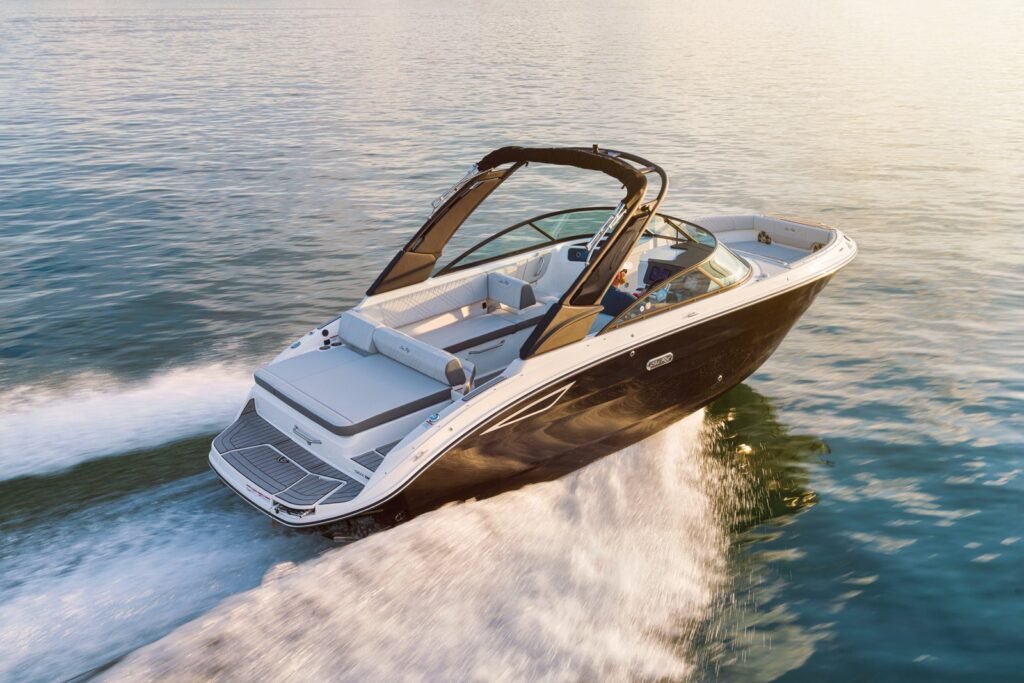On January 20, 2025, Trump’s Team returned to the White House, sending shockwaves through the US yacht industry and reverberating across the global yacht consumption market. As integral service providers in this niche and dynamic yacht ecosystem, we are now at a critical crossroads, grappling with a complex interplay of both promising opportunities and formidable challenges.
Opportunities
- Tax – related incentives 🤑: Trump has long been a staunch advocate for tax cuts. Should he re – implement such fiscal policies, it is highly likely to significantly augment the disposable income of affluent Americans. Yachts, those pinnacles of luxury maritime vessels, are bound to experience a substantial upswing in demand within the domestic US market. With more financial leeway, high – net – worth individuals will be more eager to invest in brand – new superyachts, explore the purchase of state – of – the – art motor yachts, or upgrade their existing sailing yachts with top – tier amenities. Just as previous tax cuts spurred high – end consumer spending across various sectors, the yacht industry stands to ride this economic wave, potentially witnessing a surge in orders for custom – built yachts, which could in turn boost the entire supply chain from yacht designers and naval architects to interior decorators and equipment suppliers.
- Deregulation potential 📜: His pro – deregulation stance might very well extend to the yacht industry. A relaxation of environmental and manufacturing regulations could translate into tangible cost savings for yacht manufacturers. Stringent emission regulations often necessitate the installation of costly exhaust gas cleaning systems and advanced engine technologies. With looser standards, manufacturers could potentially produce engines with less sophisticated emission – control technologies, reducing production costs. This could lead to a boom in yacht – building projects, especially for budget – friendly models. As service providers, we can expect a spike in business related to yacht maintenance, including engine servicing, hull cleaning, and rigging inspections. There will also be more opportunities for customization, such as outfitting yachts with bespoke entertainment systems, high – tech navigation equipment, and luxury interior finishes, as well as an increase in after – sales services like warranty claims and parts replacements.
Challenges
- Trade war impacts ⚔️: Trump’s strong trade protectionist stance, particularly the imposition of high tariffs on imports, could wreak havoc on the intricate global supply chain of the yacht industry. Many yachts rely on a vast array of components sourced from different corners of the world. High – performance engines are often imported from Europe, advanced navigation systems from Japan, and luxury upholstery from Italy. Higher tariffs will drive up the cost of these imported parts, leading to a significant increase in the final price of yachts. This could severely dampen global demand, especially in price – sensitive emerging markets where the luxury yacht segment is just starting to take off. Potential buyers may opt for more affordable alternatives or delay their purchase decisions, leading to a slowdown in yacht sales and a more competitive business environment.
- Economic uncertainty 🤷: His trade policies are likely to create a highly volatile and uncertain global economic environment. In such an unstable climate, consumers in the US and around the world will be more cautious about making large – scale luxury purchases like yachts. The luxury yacht market is highly sensitive to economic fluctuations, and a slowdown in economic growth could lead to a decrease in yacht charter bookings, as well as a reluctance among consumers to invest in new or pre – owned yachts. This could result in a surplus of inventory for yacht brokers and dealers, forcing them to offer discounts and incentives to attract buyers.
Preparations for yacht industry service providers
- Supply chain diversification 🌐: To mitigate the risk of supply chain disruptions caused by tariffs, we need to actively seek out alternative suppliers, especially for critical components such as engines, generators, and marine electronics. We could explore local suppliers in the US or those in other countries with more stable trade relations. This way, we can ensure a continuous supply of high – quality materials for yacht maintenance and customization services. For example, we could partner with emerging domestic engine manufacturers to source reliable powerplants for our yacht refit projects, reducing our dependence on imported engines.
- Market research and adaptation 🔍: We must conduct in – depth market research to understand how the changing economic situation and consumer behavior will impact the yacht market. If the domestic US market expands due to tax cuts, we can focus on expanding our services to meet the needs of local customers. This could include offering specialized services for high – end yacht owners, such as concierge services, crew training, and exclusive membership programs. Conversely, if the global market contracts, we may need to optimize our service packages and pricing to stay competitive. We could introduce more affordable maintenance plans, offer discounts on yacht customization services, or target niche markets such as eco – friendly yachts or yachts for adventure tourism.
- Cost – control strategies 💰: In anticipation of potential price increases in materials and services due to trade policies, we should develop cost – control strategies. This could involve negotiating better deals with existing suppliers, improving operational efficiency, and finding ways to reduce waste in our service processes. For example, we could implement lean management principles in our yacht maintenance workshops to reduce downtime and increase productivity. We could also explore alternative materials and technologies that are more cost – effective without compromising on quality, such as using composite materials for yacht hulls instead of traditional fiberglass.
Impact on environmental regulations of the yacht industry
- 1. Deregulation – A Likely Scenario
- Relaxed Emission Standards 🚢💨: Trump has shown a tendency to roll back environmental regulations. In the context of the yacht industry, this could result in relaxed emissions standards for yacht engines. Current regulations that limit the release of sulfur oxides (SOx), nitrogen oxides (NOx), and particulate matter (PM) from yacht engines might be loosened. Yacht manufacturers could then produce engines with lower – cost, less – advanced emission – control technologies, such as selective catalytic reduction (SCR) systems or diesel particulate filters (DPF). This would reduce the production cost of yachts in the short term, but it could also lead to increased air pollution in coastal areas and marinas.
- Easier Disposal and Recycling Rules 🗑️: There might also be a relaxation of rules regarding the disposal and recycling of yacht materials. Yachts are made of a variety of materials such as fiberglass, carbon fiber, metals, and plastics. Less strict regulations on waste disposal could mean that manufacturers and service providers face fewer constraints when dealing with old or damaged yachts. They may not have to invest as much in advanced recycling technologies or proper waste management systems, which could reduce their operating costs. However, this could also have a negative impact on the environment, as improper disposal of yacht materials could lead to soil and water pollution.
- 2. Impact on Innovation and Long – Term Viability
- Stifled Green Technology Development 🌱: On the flip side, the push for deregulation could potentially slow down the development of green technologies in the yacht industry. Currently, there is a growing trend towards more environmentally – friendly yachts, such as those powered by electric or hybrid – electric propulsion systems, hydrogen fuel cells, or solar panels. If environmental regulations are relaxed, yacht manufacturers may lose the incentive to invest in research and development of these cleaner technologies. This could put the US yacht industry at a disadvantage in the long – run global market, as other countries continue to prioritize and invest in sustainable yacht solutions.
- Negative Reputation and Market Perception 😒: From a consumer’s perspective, a roll – back of environmental regulations might lead to a negative perception of the yacht industry. Many environmentally – conscious consumers may be less inclined to purchase yachts if they are seen as less environmentally – friendly. This could cause a shift in market demand towards yachts from regions with more stringent environmental standards, such as Europe, which has been at the forefront of developing eco – friendly yachts. This could eat into the market share of US – made yachts and damage the reputation of the US yacht industry as a whole.
- 3. International Trade and Standards Alignment
- Trade Disruptions 🚫: A divergence from international environmental standards due to domestic deregulation could lead to trade disruptions. For example, if the US yacht industry is allowed to produce yachts with lower environmental standards than those required by the European Union or other major trading partners, it could face restrictions or tariffs when exporting yachts to those regions. This would harm the global competitiveness of US – made yachts and disrupt the existing trade patterns of the yacht industry. US yacht manufacturers may need to invest in additional compliance measures to meet international standards, which could increase production costs and reduce profit margins.
- Influence on Global Standards 🌍: Trump’s policies could also have an impact on the global dialogue regarding yacht – related environmental standards. If the US chooses to relax its regulations, it might encourage some other countries with less – developed regulatory frameworks to follow suit. However, it could also lead to a stronger push from environmentally – progressive countries to maintain and even tighten their own standards, creating a more fragmented global market in terms of environmental compliance in the yacht industry. This could make it more difficult for US yacht manufacturers to compete in the international market and could lead to a loss of market share.
#TrumpWhiteHouse #YachtIndustry #YachtMarket #YachtBusiness #YachtService #EnvironmentalRegulations #YachtEconomy


